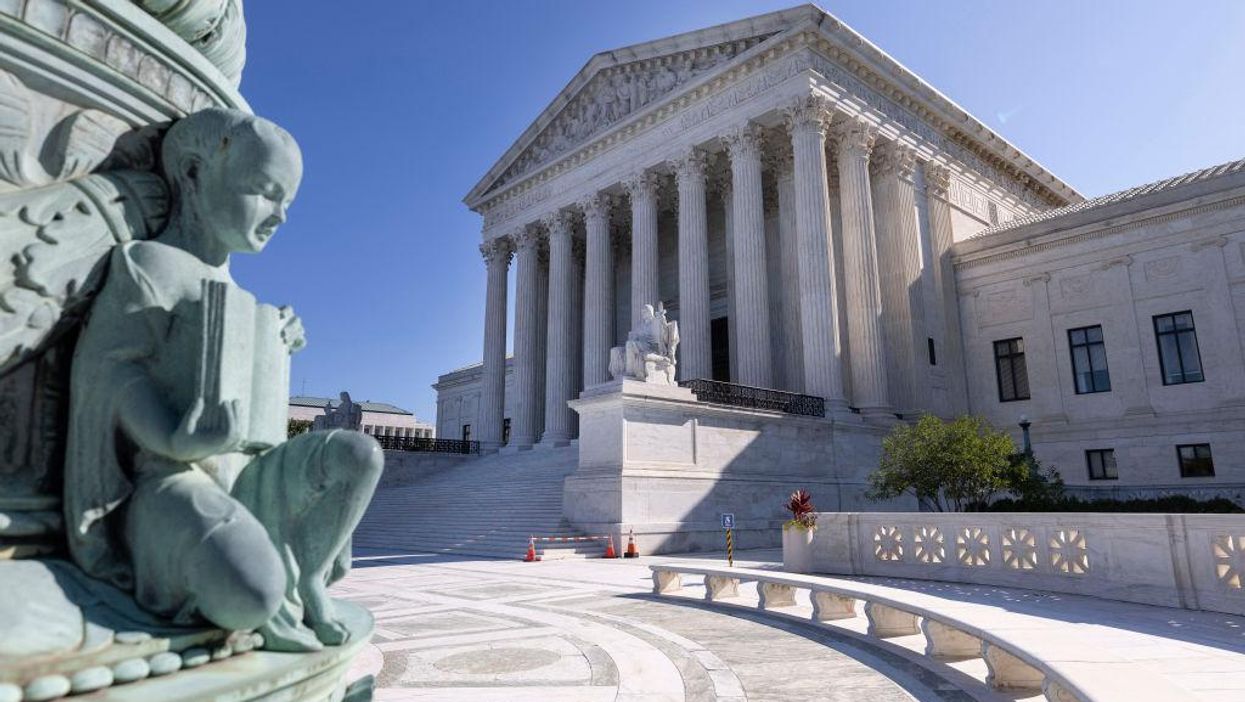
Kevin Dietsch/Getty Images

The United States Supreme Court on Wednesday rejected a Wisconsin legislative redistricting plan put forward by Democratic Gov. Tony Evers, dealing a blow to Democratic state governments who have sought to twist federal law in order to create race-based gerrymanders.
In an unsigned opinion, the court's 7-2 majority said that the Wisconsin Supreme Court had "committed legal error" in the way it applied the federal Voting Rights Act to Evers' state redistricting plan.
The state court approved Evers' plan after the Democratic governor had vetoed several plans passed by the Republican-controlled legislature. At an impasse, the court ordered the legislature and the governor to propose maps that complied with the state constitution, the federal Constitution, and the Voting Rights Act. It then selected Evers' map, which had created seven majority-black districts, adding one new majority-blacks district.
The governor had argued that the addition of one new majority-minority district was necessary to comply with the Voting Rights Act.
GOP lawmakers and the Wisconsin Institute for Liberty challenged Evers' map, arguing that the governor had used racial gerrymandering to create a new likely Democratic district, in violation of the Equal Protection Clause of the 14th Amendment.
The Wisconsin Supreme Court sided with the governor, stating that while "we cannot say for certain on this record that seven majority-Black assembly districts are required by the VRA," there were "good reasons to believe" the district was necessary.
Seven U.S. Supreme Court justices disagreed.
"Under the Equal Protection Clause, districting maps that sort voters on the basis of race 'are by their very nature odious,'" the majority wrote.
"[Evers'] main explanation for drawing the seventh majority-black district was that there is now a sufficiently large and compact population of black residents to fill it ... apparently embracing just the sort of uncritical majority-minority district maximization that we have expressly rejected," the court said.
The justices said the Wisconsin Supreme Court had erred by ignoring several factors judges were required to consider when making a judgement on a redistricting map. The state court had instead "focused exclusively on proportionality" and failed to consider "whether a race-neutral alternative that did not add a seventh majority-black district would deny black voters equal political opportunity."
The Supreme Court remanded the case back to the state supreme court with instructions to reconsider the case.
"On remand, the court is free to take additional evidence if it prefers to reconsider the Governor’s maps rather than choose from among the other submissions. Any new analysis, however, must comply with our equal protection jurisprudence," the court said.
Liberal Justices Sonia Sotomayor and Elena Kagan dissented, calling the Supreme Court's decision "unprecedented."
“In an emergency posture, the Court summarily overturns a Wisconsin Supreme Court decision resolving a conflict over the State’s redistricting, a decision rendered after a 5-month process involving all interested stakeholders. Despite the fact that summary reversals are generally reserved for decisions in violation of settled law, the Court today faults the State Supreme Court for its failure to comply with an obligation that, under existing precedent, is hazy at best,” Sotomayor wrote.
In a separate, unanimous order, the Supreme Court approved congressional maps drawn by Evers, which had been challenged by Republican members of Congress from Wisconsin.